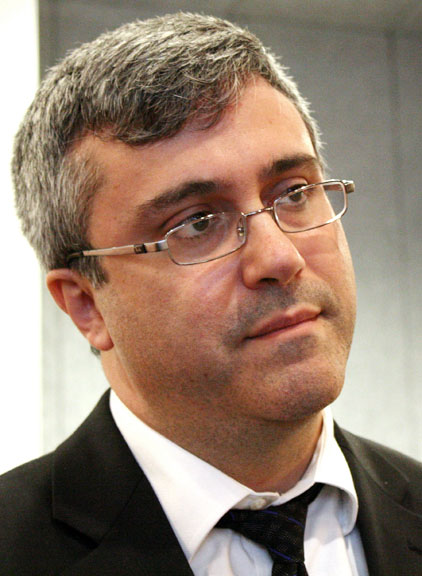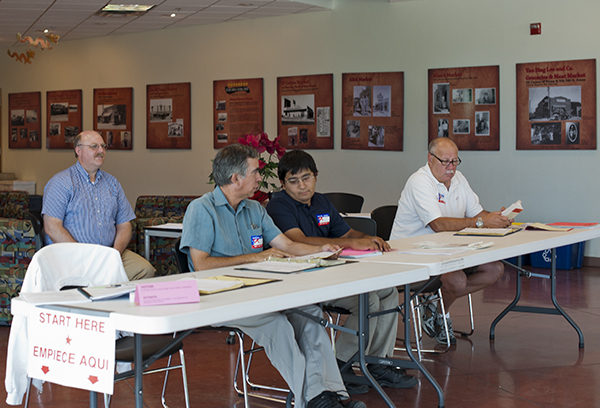
Thomas A. Saenz is the president and general counsel for MALDEF, the Mexican-American Legal Defense and Educational Fund. Photo by Khara Persad/News21.
The Supreme Court decision on Arizona’s immigration law this week has drawn not only national attention, but was the focus – along with voting law – of leaders who met Tuesday in Phoenix for the first Latino State of the State of Arizona.
Much of the event, presented by the Mexican-American Legal Defense and Educational Fund, centered on the high court’s ruling that left in place the most controversial portion of SB 1070, the so-called “show your papers” requirement.
Many attendees also spoke in opposition to Proposition 200, Arizona’s voter-ID law.
Thomas A. Saenz, MALDEF’s president and general counsel, described the financial barriers faced by eligible Latino voters who would have to obtain an ID to vote as a result of law.
“You have to pay a price to vote,” Saenz said. “That’s not a price that a lot of people in the middle class or maybe even above are cognizant of, but for other communities, it’s quite difficult. It’s a barrier to vote.”
By Jack Fitzpatrick and Khara Persad, News21


